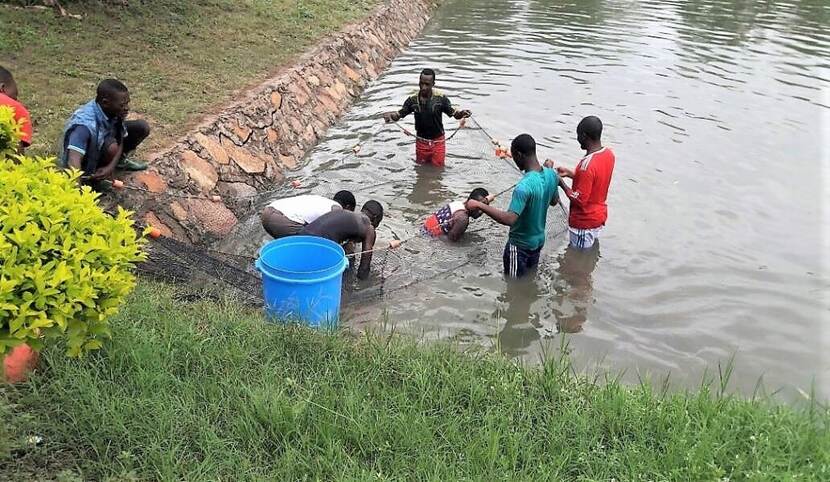Aquaculture training as a contributor to Tanzania’s sustainable development
As part of the implementation of the MoU between Tanzania and the Netherlands, an aquaculture training will start with the Fisheries Education and Training Agency (FETA). The aim of the MoU, signed on the 10th of July, 2019 between both governments, is to develop a robust and competitive aquaculture value chain, with a focus on facilitating the sustainable development of the private sector and to help them improve their yields.
The aquaculture sector has the potential to contribute immensely to sustainable development in Tanzania over the coming years and decades. At present, aquaculture is largely a subsistence activity in Tanzania, practiced by lower-income households in the coastal and inland areas. The aquaculture sector is seen as a sector capable of addressing some of the development priorities of the Tanzanian government: food insecurity and employment. Moreover, Tanzania has great potential for sustainable aquaculture: its climate is ideal for farming indigenous fish species such as tilapia and African catfish.
What is the current situation?
Fisheries production in Tanzania is dominated by freshwater fish farming from inland water sources, with Lake Victoria accounting for the majority of the freshwater fish farming.

Aquaculture is largely practiced by small-scale farmers engaged in fish farming. The benefits arising from aquaculture production are several: locally produced fresh fish, derived from aquaculture, contributes greatly to people's requirements for healthy animal proteins and diversified diets, along with employment opportunities. Currently, aquaculture production is practiced on a small scale, often struggling to produce in a cost-efficient, profitable and sustainable manner. One of the challenges hindering the optimal development of the aquaculture industry in Tanzania is the inadequate knowledge and skills of educators in fisheries management sector.
Addressing the challenges
Q-Point B.V, a Dutch consultancy company, was recently awarded a grant to undertake an aquaculture training initiative in Tanzania. They will work hand in hand with the Fisheries Education and Training Agency (FETA) Tanzania, a Technical Vocational Education and Training Institute and alongside other partners, in implementing the “Sustainable Aquaculture Sector Development Training Tanzania” project. The Tailor-Made Training (TMT) is funded by the Netherlands Embassy.

Training as a drive towards aquaculture sustainable development
Q-Point BV will work with three FETA campuses (FETA Nyegezi, Kigoma and Mbegani) in the delivery of several training sessions that seek to address some of the key challenges faced by the aquaculture sector through training in areas in need of enhancement. One of the key challenges identified is a lack of appropriate aquaculture knowledge and skills of FETA staff, although the demand for appropriate knowledge exists in the sector. The TMT will greatly benefit FETA staff as the training seeks to strengthen the capacity of staff in education, extension services, training and advice related to the aquaculture sector, so that educators can better serve the students enrolled and the communities at large through enhanced extension services. Training will also be extended to youth, rural women and fish farming families from neighbouring communities, with their participation essential in understanding their needs.
For any questions for the agricultural department, feel free to contact us via dar-lnv@minbuza.nl. For the latest updates on activities, new articles and more follow us on twitter on @NLAgiTanzania and you can subscribe to our newsletter by sending us an email. Also read more information through our website Tanzania | Landeninformatie | Agroberichten Buitenland